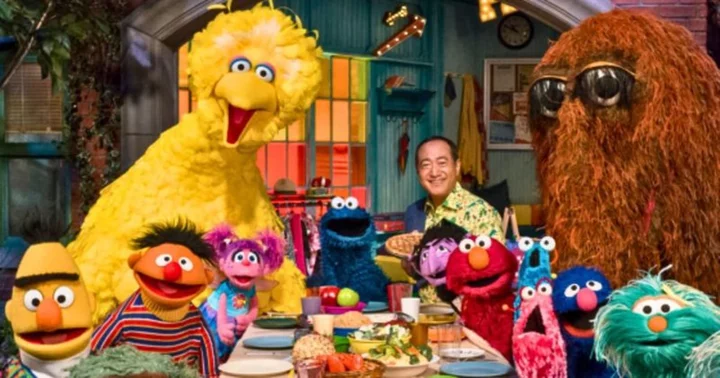NEW YORK CITY, NEW YORK: On November 10, 1969, history was made with the debut of 'Sesame Street' on PBS. The groundbreaking television show would go on to captivate and educate generations of young children.
With its catchy theme song and lovable characters, 'Sesame Street' quickly became the most widely viewed children's program in the world, reaching audiences in over 120 countries. This article takes a closer look at the origins of the show and its lasting impact on children's education.
Who were the creators of 'Sesame Street'?
The brainchild behind 'Sesame Street' was Joan Ganz Cooney, a former documentary producer for public television and Lloyd Morrisett.
Cooney had a vision to create programming that would entertain and educate preschoolers, particularly those from low-income backgrounds, in order to help them prepare for kindergarten.
She wanted to utilize the power of television to level the playing field and provide a valuable learning experience for all children.
Set in a fictional New York neighborhood, "Sesame Street" was designed to reflect the diversity and multiculturalism of real-life communities.
The show featured a cast of ethnically diverse characters who taught positive social messages, promoting inclusivity and tolerance. Cooney understood the importance of representation and believed that children from all backgrounds should be able to see themselves reflected on screen.
What makes 'Sesame Street' so popular?
One of the most beloved aspects of 'Sesame Street' has always been its Muppet characters. Cooney enlisted the help of puppeteer Jim Henson to bring these lovable puppets to life.
Henson's creative genius gave birth to a cast of iconic characters that have become synonymous with the show.
Bert and Ernie, Cookie Monster, Oscar the Grouch, Grover, and Big Bird are just a few of the unforgettable personalities that have made 'Sesame Street' a household name.
From the moment it premiered, 'Sesame Street' revolutionized children's television programming. It introduced an innovative format that combined entertainment with education, using engaging storylines and vibrant visuals to teach young viewers important skills such as the alphabet and counting.
The show's interactive nature encouraged active participation, making the learning experience fun and enjoyable.
Who could forget the catchy tunes that still play in our heads today? 'Sing a Song', 'Rubber Duckie', and of course, the timeless classic, 'It's Not Easy Being Green' by our beloved Kermit the Frog.
These songs not only entertained us, but they also taught us about emotions, empathy, and accepting ourselves for who we are.
What is the point of 'Sesame Street'?
Over the years, "Sesame Street" has continued to evolve and adapt to the changing needs of its audience. The show has tackled important social issues, including race, disability, and gender equality, with sensitivity and inclusivity.
It has consistently pushed boundaries and challenged societal norms, aiming to create a more inclusive and accepting world for children.
The impact of 'Sesame Street' cannot be overstated. Generations of children have grown up watching the show and have been positively influenced by its educational content.
Countless studies have shown that watching 'Sesame Street' is associated with improved school readiness, cognitive skills, and social-emotional development in children.
The show's ability to reach children from diverse backgrounds and provide them with equal opportunities for learning has been groundbreaking.
The show has not only entertained millions of children but has also empowered them to learn and grow. Its enduring legacy as a pioneering educational program continues to resonate with viewers of all ages.
And let's not forget about the bold and groundbreaking moves made by 'Sesame Street' throughout its history.
From introducing bilingual education through the character of Maria to addressing tough topics like death, divorce, and even HIV/AIDS, the show never shied away from discussing real-life issues but in a manner that helped children understand and process the complex world around them.
In a world where quality education is still a privilege for many, 'Sesame Street' stands as a testament to the power of media to make a difference.









